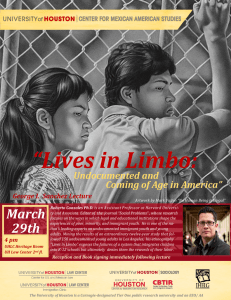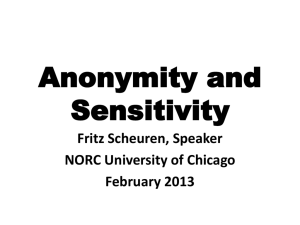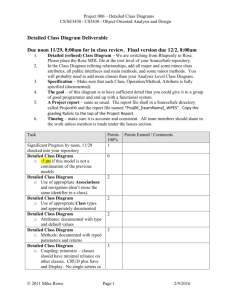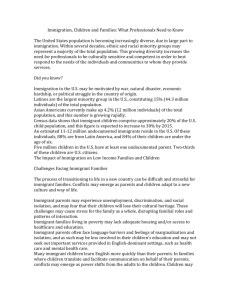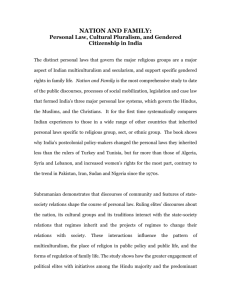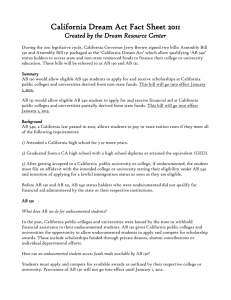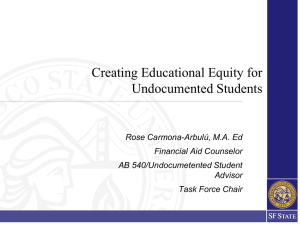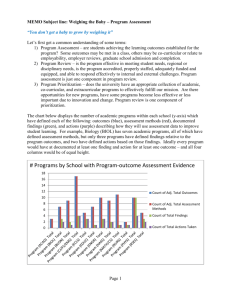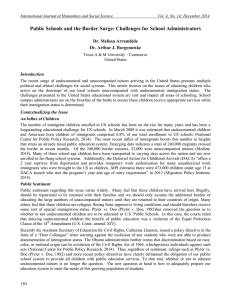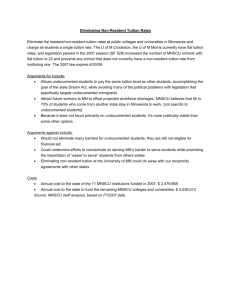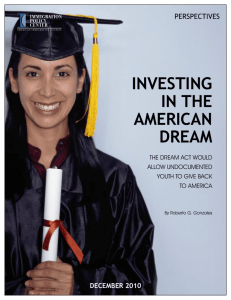View/Open - IUP DSpace Home
advertisement
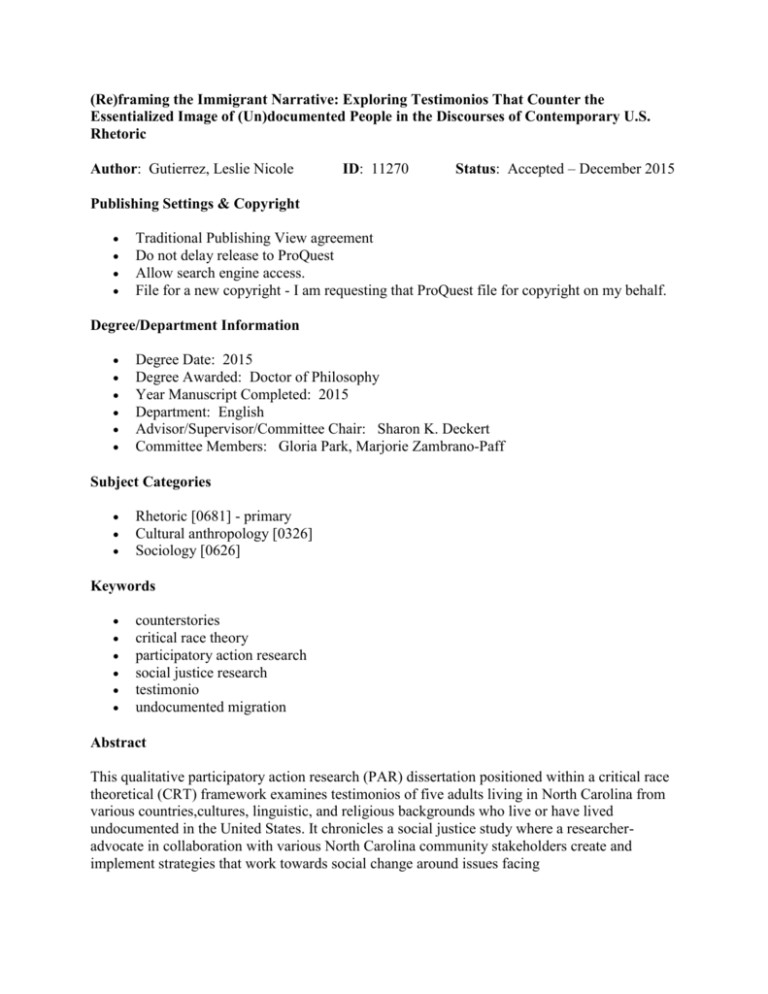
(Re)framing the Immigrant Narrative: Exploring Testimonios That Counter the Essentialized Image of (Un)documented People in the Discourses of Contemporary U.S. Rhetoric Author: Gutierrez, Leslie Nicole ID: 11270 Status: Accepted – December 2015 Publishing Settings & Copyright Traditional Publishing View agreement Do not delay release to ProQuest Allow search engine access. File for a new copyright - I am requesting that ProQuest file for copyright on my behalf. Degree/Department Information Degree Date: 2015 Degree Awarded: Doctor of Philosophy Year Manuscript Completed: 2015 Department: English Advisor/Supervisor/Committee Chair: Sharon K. Deckert Committee Members: Gloria Park, Marjorie Zambrano-Paff Subject Categories Rhetoric [0681] - primary Cultural anthropology [0326] Sociology [0626] Keywords counterstories critical race theory participatory action research social justice research testimonio undocumented migration Abstract This qualitative participatory action research (PAR) dissertation positioned within a critical race theoretical (CRT) framework examines testimonios of five adults living in North Carolina from various countries,cultures, linguistic, and religious backgrounds who live or have lived undocumented in the United States. It chronicles a social justice study where a researcheradvocate in collaboration with various North Carolina community stakeholders create and implement strategies that work towards social change around issues facing (un)documented members of their state. This study explores how dominant immigrant discourses positioned within a United States-Mexico border framework shape the lives of five non-Mexican (un)documented adults. It examines how a partial narrative unfairly targets some, while hiding the complexity of the undocumented migration phenomenon in general as well as the true diversity of these communities more specifically. Data were collected collaboratively through individual interviews, which are compiled and presented as testimonios. Emergent themes from these first-person call-to-action-narratives were co-constructed and analyzed by the researcher and participants. The (un)documented adults’ expert livedknowledge along with a CRT analytic lens was employed to reveal how larger power structures affect their experiences, struggles, and aspirations. The findings of this study indicate that the participants’ lives have been shaped by biased dominant border discourses that tend to construct racialized and criminalized depictions of them which in turn guides how they are talked about, treated, and (mis)perceived. Their diverse testimonios oppose the commonly Mexicanized (un)documented migrant border story and call for multiple counter-narratives that nuance the complexities of undocumented migration by historicizing and contextualizing global push-pull factors as well as indexing the multiple identities, cultures, ways of becoming undocumented, and experiences within these communities. Findings add to critical race theory scholarship, which actively fights against racism and other forms of oppression. It informs future research by revealing alternate ways to re-present dominant (un)documented immigrant discourses.
